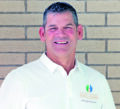General News » News
Average residential taxes to increase by $130
June 3, 2015 · 0 Comments
By Brock Weir
Aurora homeowners with a property assessed at $500,000 can expect a $129.95 increase to their annual tax bill following Council’s approval of the 2015 Municipal Budget last week.
After a lengthy and extended series of deliberations, Council approved a 3.91 per cent increase on the municipal portion of your tax bill in an 8 – 1 vote. Mixed and weighted with a 2.97 per cent increase from the Region of York – and unchanged education taxes – this increase will result in an overall combined tax increase of 2.69 per cent.
A $500,000 property was used as the benchmark in this year’s budget deliberations but owners of residential properties assessed at $300,000 can expect to see a combined increase of $77.97, while those assessed at $400,000 and $600,000 can expect $103.96 and $155.94 respectively.
Aurora’s 2015 Budget accounts for $56 million to operate Aurora’s programs and services. $37 million of this will come from property taxes, with the remainder stemming from user fees, fines, and charges, according to the Town. A further $18 million Capital Budget was approved in March to cover infrastructure.
The 3.91 per cent increase can be broken down as follows: 1.82 per cent to run Aurora as it operates today – as well as covering costs to improving services, and rising insurance and benefit rates – along with 1.3 per cent pressure for the six year phase-in of a new fire crew to serve Aurora and Newmarket, and the remaining .79 per cent to Aurora’s “fiscal strategy”, which includes weaning the Town off the interest accrued from reserves set aside from the sale of Aurora Hydro.
Voting against the budget was Councillor Wendy Gaertner, who said 3.91 per cent was simply too much.
“I know everyone has worked hard, but I can’t approve a 3.91 per cent tax increase,” she said.
Others, however, were keen to stress how this 3.91 per cent breaks down.
“We could have easily gone to the reserves and taken from it to offset the tax increase, which has been done, but we’re going in the opposite direction,” said Councillor John Abel. “1.3 per cent is being put forward for the crew our Master Fire Plan has said there is going to be a need for, and I think I am pleased with the 1.82 per cent to [operate Aurora]. I know Councillor Gaertner can’t see 3.91, but I think it is prudent to say where that came from.
For Councillor Michael Thompson, the 2015 budget process was particularly “challenging” over previous years, but there is a silver lining, he said, citing the groundwork that has been laid by Council in establishing a Finance Advisory Committee with the intent of making the budget process more efficient.
“We arrived at a consensus that is better off for the residents but, more importantly, we all came to the realisation we need to improve upon the current process moving forward so it is more efficient,” he said. “I agree that throughout it all we tried to take a balanced approach. We tried to look at the affordability of the taxpayers to be able to pay and, at the same time, maintaining the quality of public service that we provide and the residents expect. I think this is a reasonable budget. It does touch upon all of those things with regards to how to maintain affordability and the maintaining of service.
“When we started this budget process I remarked the fact the average wage increase was only about two to 2.5 per cent, and that was part of my role in terms of the base budget of running Aurora. We’re trying to keep it in line with some of the metrics out there. We’re not there yet, but through our process we will get there.”
Providing a breakdown of the tax bill was important not just on how the municipal portion is divvied up, but also how it is compared and weighted with increases coming from the Regional level, said Mayor Geoff Dawe. Aurora is part of a two-tier system, he said, with Aurora having the smaller piece of the tax pie.
“I think we need to look at this holistically,” said Mayor Dawe. “We need to look at everything we put together. Yes, our individual rate is 3.91. A lot of people would be upset with that because it is way over the price of inflation, but when we roll in everything that the upper level government provides, which is policing, which is social services, which is hospital funding, transit, and everything else we use, we have to look at the blended rate in order to fairly compare what our cost of operation is to other places.”
He also recognized those same challenges with bringing this year’s budget in for a landing.
“We worked very hard [on the Budget] and some of us were more frustrated than others with the budget process. I have some lessons learned in terms of how I could have helped our new members be more comfortable with the budget process – and I can certainly appreciate that because I was in your position four years ago, and I guess I forgot where I was four years ago, and I apologise for that, but I think going forward with our Finance Advisory Committee, we are developing some good processes to put in place to have a system that is going to be much more manageable and much easier to understand.”












